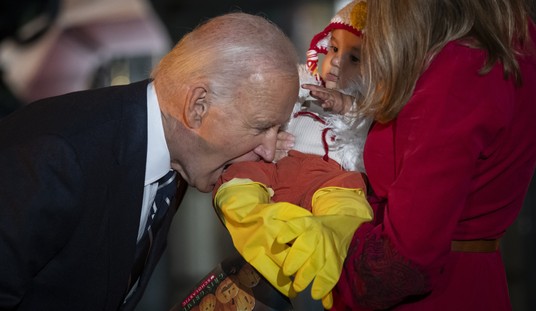If “it’s all about the jobs”, why are Democrats trying to kill one of the only successful job creation engines in our economy?
From Texas and Louisiana to North Dakota and Pennsylvania, energy development is creating good jobs, well-paying jobs, by the tens and even hundreds of thousands. Billions of dollars are flowing into the economies of the host states. The common thread of the booms in these states is shale drilling. Over the last few years, technological advancements have enabled commercial oil and gas production from shale rock long that according to conventional wisdom was unproductive.
Successful? At this point, some 25% of domestic natural gas production is from shale formations. And that proportion is expected to grow in the coming years.
As with most new technologies, shale drilling is not without controversy. But now, spurred by a series of skeptical articles in the New York Times, Congressional Democrats (including Reps. Markey of MA and Hinchey, Nadler and Maloney of NY) are calling for the Securities and Exchange Commission to investigate the methods the leading shale companies use to estimate their reserves.
Congressional Democrats routinely call for investigations when energy company profits are “obscenely high”; ironically, these same folks are calling for a probe on suspicion that the profitability of shale gas is not high enough.
WASHINGTON — Federal lawmakers called Tuesday on several agencies, including the federal Securities and Exchange Commission, the Energy Information Administration and the Government Accountability Office, to investigate whether the natural gas industry has provided an accurate picture to investors of the long-term profitability of their wells and the amount of gas these wells can produce.
“Given the rapid growth of the shale gas industry and its growing importance for our country’s energy portfolio, I urge the S.E.C. to quickly investigate whether investors have been intentionally misled,” wrote Representative Maurice D. Hinchey, Democrat of New York, in one of three letters sent to the commission by four federal lawmakers, all Democrats. …
The calls for investigations follow articles in The New York Times describing doubts reflected in internal e-mails from federal regulators and natural gas industry officials about the costs associated with shale gas and the reliability of company reserves estimates.
Those Times articles themselves have been the subject of criticism and controversy. Many of the internal emails upon which they were based date from 2007-09, when the technology was newly emergent. Much has been learned since that time.
Then the Times’ own “public editor” Arthur Brisbane weighed in. In his role as ombudsman, Brisbane criticized the original story as having relied too heavily on the opinions of industry critics without offering any credible dissenting views. The authors and editors of the original story did not back off.
Following up, Brisbane published a column, “Why Redacting E-Mails Is a Bad Idea“.
In the article and in the document viewer, readers never learn the actual positions or identities of the e-mail senders, who are characterized using descriptors like “official,” “energy analyst,” “federal analyst,” “senior adviser” or “senior official.” Nowhere is an e-mailer characterized as an “intern.” …
The “intern” was C. Hobson Bryan, a 2009 college physics-engineering graduate who E.I.A. said was hired as an intern in summer 2009 and upgraded to general engineer in March 2011. [Emphasis added.]
In industry, an employee with such a scant resume would barely qualify for an email account and the access code to the restroom. To the Times, he’s a “senior official” of the EIA. This is outrageous. (By comparison, your humble correspondent is a graduate engineer with 33 years industry experience, most of that time directly involved in reserve estimation. And a Professional Engineer, to boot, so I speak with some authority on the topic.)
Not only that, the unredacted emails which have since been released show the young Mr. Bryan to be a real “green diaper” baby (p. 40):
I think I can safely say that trusting industry to regulate itself is a bogus idea, comparable to letting the wolf guard the hen house. Through the experiences of my mother who was an environmental lawyer, my father who is a sociologist that specializes in environmental impact assessment, and a grandfather who was a hydrologist, I’ve had a lot of exposure to situations where greed and a lack of social responsibility goes unchecked…
Totally bogus, dude.
Within the petroleum engineering community, there is some controversy regarding the handling of reserve estimates in shale gas and other “unconventional plays”. It is impossible to separate the topic of “reserves” from commodity prices, since to qualify as reserves, a resource must be economic.

At some level, shale well economics are victims as a result of the technology’s success. The success of horizontal drilling and its high initial production rates, natural gas has become cheap relative to oil. Now with cheap gas, some (including the Times) question the economic viability of new drilling. That means higher risk for the investor, but it’s a really good deal for the consumer. That’s how the free market works in a commodity business like energy.
As with all new technologies, early adopters take substantial risk of failure, and many lose their money. They also have loads of detractors along the way. The detractors may well be right. But if the technology works, the reward goes to the participants who are luckier, smarter or better managers than the rest. And that’s as it should be in our capitalist system.
As I’ve said before, I’m no shale gas booster; I’ve been something of a skeptic on reserves. So far, my company has not ventured into any of the resource plays, due in part to our uncertainty over expected reserves and financial returns.
That being said, the Times is off base.
If Messrs. Nadler and Hinchey and Ms. Maloney are comfortable with high unemployment and energy dependence for New York, that’s between them and their constituents.
But when it comes to setting national energy policy, these same representatives (along with Mr. Markey and just about every other non-energy state Democrat you care to name) are reflexively opposed to any industry-led solutions. Their government-centric energy solutions would involve central planning and control, “socialization”, and zero innovation. They would have us shivering in the dark.
They must not win.
Cross-posted at stevemaley.com.














Join the conversation as a VIP Member